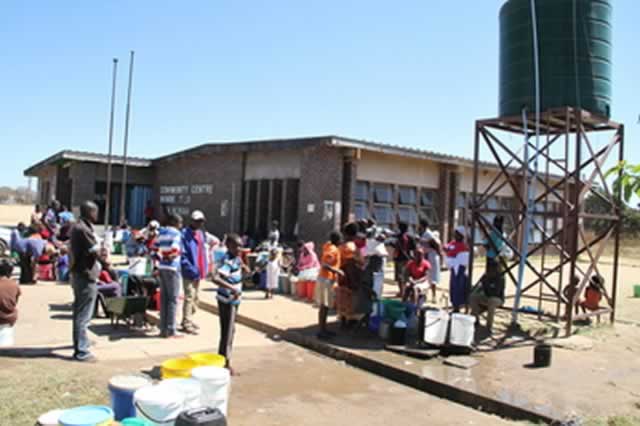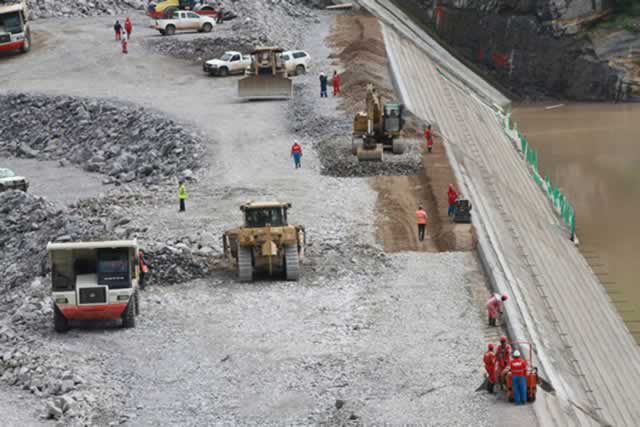Editorial Comment: Let’s all step up to end water crisis


Glen Norah residents queue for hours to fetch clean water from a borehole at a community centre due to shortages experienced in the suburb recently
The water problems of Zimbabwe’s towns and cities are notorious and the highlighting of them last week at two meetings, a high-powered launch in Mutare of the Water and Sanitation Service Level Benchmarking and the conference of stakeholders at Lake Chivero on the disasters facing that lake, should help to concentrate minds to produce action.
Harare and its satellite towns provide a first-class example of what has gone wrong, as well as offering the best opportunity to get things fixed.
At the beginning of the 1990s, Harare had sorted out most of the problems from its first century of growth.
Water supplies were doubled through a well-planned programme to install modern sewage treatment plants, which ensured that the raw water in Lake Chivero was available and clean, to link Lake Manyame to the waterworks and to double the capacity of Morton Jaffray Waterworks.
At the same time laws to prevent erosion of stream banks were enforced and National Parks were enforcing the rules at Lake Chivero.
Simply carrying on that programme, adding new bits every few years and maintaining what was there was all that was required. That did not happen.
Some of this decline was a lack of will by the authorities, some of it was a side-effect of the economic problems of the first decade of the 21st century, and some of it was the unwillingness of Harare residents to pay water and sewer charges and to make a filthy mess of their own backyard.
Everyone knows what is needed, and the benchmarking launch in Mutare will give experts and public alike the hard data they need to know exactly what is wrong and just how much, or how little, is being done by the authorities and the public to fix these problems.
We need to fix and expand the sewage treatment plants, so we have inflows of decent quality raw water into the supply dams; we need to manage our storm water run-off so that it does not carry tonnes of silt into our dams; we need to fix our water and sewer mains so they do not leak; we need to upgrade our water purification plants and we all need to learn how to use water wisely. The answers are there and there is some slow implementation of some of them.
But real progress will only be made when those responsible can afford to do the work, and that, as Minister of Environment, Water and Climate Cde Saviour Kasukuwere said in Mutare, will only happen when everyone pays their bills.
He noted that most people spend more on airtime than water and he is correct, the water and sewage charges are low, they are a basic necessity and they must be paid.
Zesa, which is now getting a strong regular cash flow because the switch to pre-paid meters means people pay for what they use and benefit immediately if they use less, is showing what such regular payments can do.
Chinese companies and banks are willing after seeing those cash flows to extend Kariba South Power Station and build a new thermal station in Matabeleland because they know they will be paid and so, with zero risk, are able to offer attractive prices and low interest finance.
It will take some years, but by 2020 Zimbabwe should finally have adequate power supplies.
The conference at Lake Chivero highlighted the disaster that faces that dam if we do not take action, and incredible opportunities that are there if we do. That conference, even more than the one in Mutare, showed that everyone has to be involved, not just one or two agencies.
Our problems are fixable. We just need to take action. But that means everyone has to take action, not leave it to the experts.









Comments